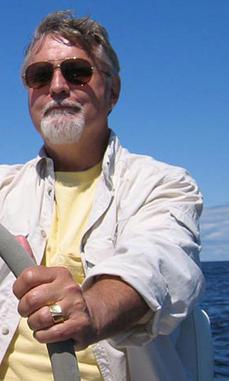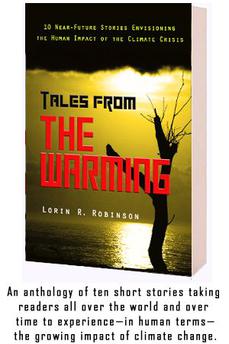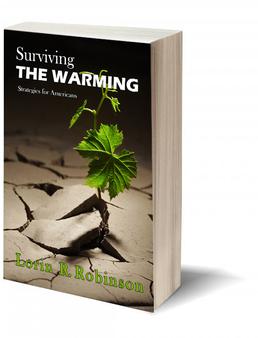© Moronic Ox Literary Journal - Escape Media Publishers / Open Books
Moronic Ox Literary and Cultural Journal - Escape Media Publishers / Open Books
Novel Excerpts, Short Stories, Poetry, Multimedia, Current Affairs, Book Reviews, Photo Essays, Visual Arts Submissions
Advertise your book, CD, or cause in the 'Ox'
45 Centuries Later,
What’s Changed?
(Originally published by The CapTimes, September 20, 2017)
by Guest Editor Dr. Lorin R. Robinson
I try not to dwell on the condition of the world. I am one of many who feel powerless to do anything meaningful to help solve the calamities and coming calamities of our times. But I do occasionally get overwhelmed and have a bad day.
Like the other day when it simply got to be too much.
Hurricane Harvey had rained death and destruction on the Texas and Louisiana Gulf Coasts. His malevolent sister, Irma, was flattening Caribbean islands on her way to a date with Florida. Meanwhile, hundreds of wild fires raged in the West, sending a smoky pall over about a third of the country.
And, as the world watched, two unhinged despots—one in Washington; the other in Pyongyang—exchanged insults and played at what appears to be testosterone-driven nuclear brinksmanship.
Then there was further evidence that weekend—as if any were needed—of the increasing gun violence in our country. There were 47 shooting incidents in Chicago.
And if all that weren’t enough, white supremacists—with bed sheets and swastikas—were increasingly crawling out from under their rocks, making one wonder if we have to defeat Jim Crow and Adolf Hitler all over again.
That afternoon, my wife and I headed out to run some errands. One stop was a tile shop where we hoped to buy a cleaner for our ceramic tile shower. For the life of me, I couldn’t muster up any interest in tile cleaners, so I left Linda with the clerk to explore the benefits of the various available products. Instead, I wandered into the empty show room and sat at a coffee table. Its single book—a massive, true coffee table book—was titled Ceramics in Turkey: The History of Earth and Fire. Its subtitle: An 8,000-year history of ceramics in Anatolia.
Any other day, the book might not have caught my attention. But I was looking for a distraction. So I randomly riffled through its pages, stopping at an early chapter about cuneiform writing. I was puzzled at first at its inclusion in the book until I remembered that clay was the medium for cuneiform—one the world’s first writing systems. Wedge-shaped indentations were made in wet clay tablets using a reed stylus with triangular tip. I was informed cuneiform was invented by the Sumerians in Mesopotamia about 5,000 years ago, predating Egyptian hieroglyphs.
But what got my attention was a translated example of cuneiform in the text. The claim was that it came from a diary written about 2,500 BC by a woman named Lammasatum:
“It was always I who produced.
I who planted the Earth.
I who gathered the produce of it.
And when we were hungry we ate our fill.
And it was I who wove so we might be clothed.
And then it was cold, and we did not shiver.
And then it was hot, and we did not burn.
It was I who made vessels from the Earth.
And from them we drank.
In the wild country, it was I who toiled.
It was I who gave order to our home.
My nights I gave to my husband.
And to my children, I gave birth.
A gift to society.”
I was moved by the simple eloquence of the passage; by the intimate look it afforded into the life of this woman and her family; by the fact I was reading thoughts written 45 centuries ago. This, it occurred to me, is what life was like before humankind became so smart—before we added the layers of often destructive, disruptive technologies and the layers of ineffectual social, political, economic and religious dictums and dogma.
This is not to glamorize or romanticize Lammasatum’s life and the lives of those of her time. Her life, I’m sure, was relatively short and brutish. There was war, genocide, disease, drought and famine. But, of course, 4,500 years later, many millions on the planet still face war, genocide, disease, drought and famine—and live short and brutish lives. And to that, in all our wisdom, we have added and continue to add enough greenhouse gas to the atmosphere to bring the survival of our civilization—at least as we know it—into question.
No, there have never been “the good old days.” Nor, it seems likely, will there be “good new days.”
Well, at least the tile cleaner works. It might have made Lammasatum’s life a little easier.
Dr. Lorin Robinson is a writer and former chair of the Journalism Department, University of Wisconsin—River Falls. His latest book is Tales from The Warming: 10 Near-Future Stories Envisioning the Human Impact of the Climate Crisis.






